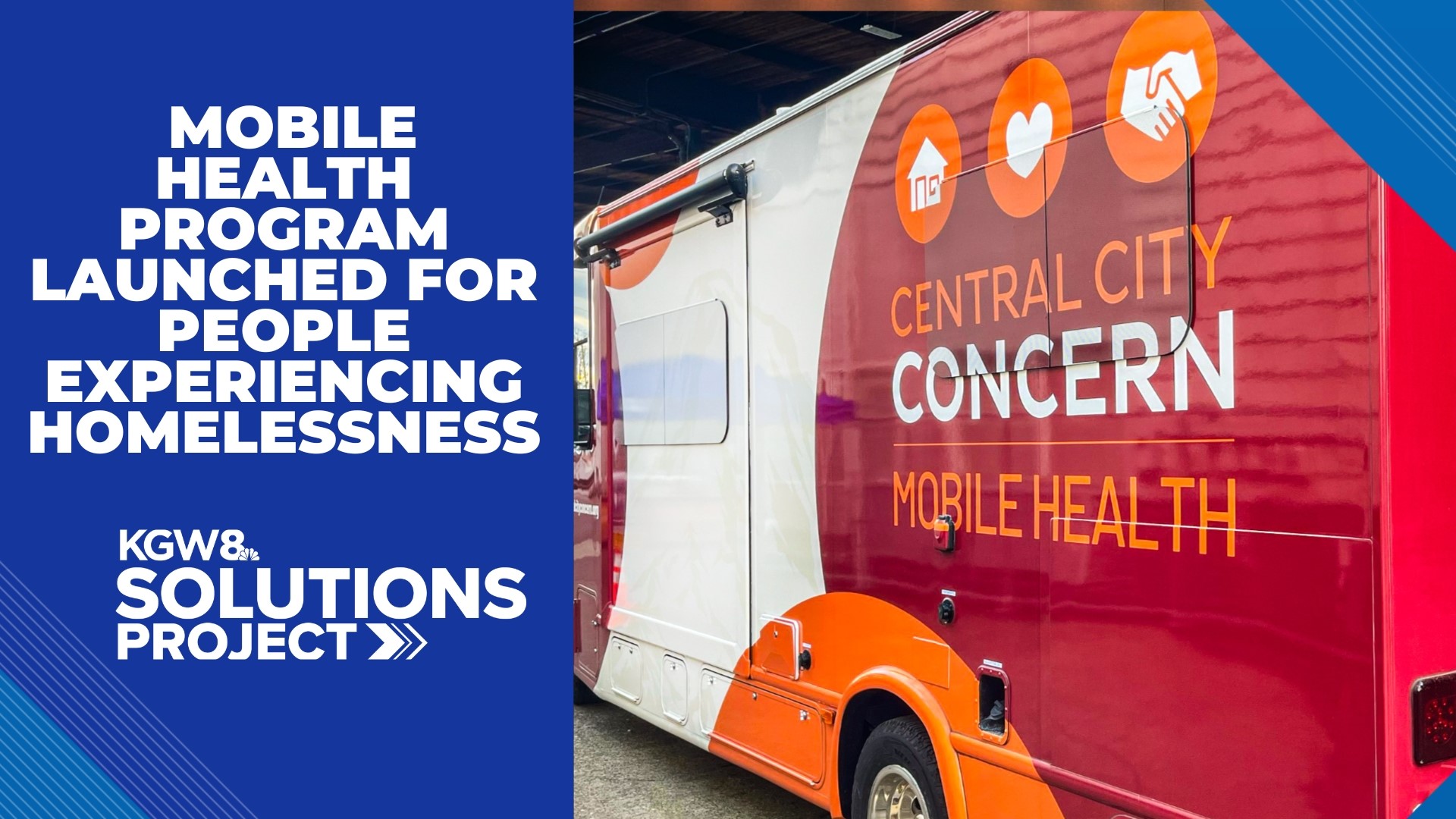PORTLAND, Ore. — Central City Concern aims to "move the front door" for access to health care with the launch of two mobile health vans providing services to people experiencing homelessness.
Each custom-made van will allow Central City Concern and their partner, Medical Teams International (MTI), to directly provide wound care, physical exams, infectious disease screening, vaccinations, and medications. The nonprofit organization said people experiencing homelessness are constantly on the move, which can make it challenging to deliver traditional "brick and mortar" health care.
"A lot of hurting folks out in the street. And what we're seeing as we meet with some of these people, some of these people have never connected with care at all, "Lorie Dolo Scott from Central City Concern said. We're meeting people who have never darkened our doors. And so, we realize we can't just sit in a brick and mortar and care for people. We've got to get closer to them.
RELATED: Portland mayor, Multnomah County chair release details of joint plan to address homelessness
The mobile vans will be staffed with primary care providers, including nurses, a behavioral health specialist and a community health outreach worker. The teams will visit shelter sites, sanctioned and unsanctioned encampments and service hubs like day centers, food resource sties and community events.
"We are so proud to celebrate this milestone event,” said Dr. Andy Mendenhall, president and CEO of Central City Concern. "Folks need access to the right treatment at the right time. Sometimes that means bringing services to their front door, wherever that may be."
Funding for the mobile program has been provided by Multnomah County’s Joint Office of Homeless Services, Oregon Health Authority, Trillium Community Health Plan, the Maybelle Clark Macdonald Fund and the city of Portland.
"We know a lot of folks in our community have felt unseen or marginalized by traditional healthcare services," Mendenhall said. "Our hope is that by bringing healthcare to our neighbors' door, we can treat problems immediately and prevent future complications or hospitalizations."
Many people in the community support the new mobile health vans. And think they will help so many that need healthcare.
"It's really just important to meet people where they are, " said Roxy Belshe. "And get out there and help people who are in need of help and resources and people to encourage them."

